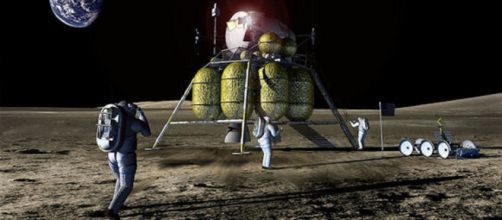One of the more dispiriting aspects of the commemoration of the 15th anniversary of the 9/11 attacks was the shows of disunity, as illustrated by football players following Colin Kaepernick’s lead by refusing to stand for the national anthem. The situation stands in stark contrast with the great unity and resolve that the United States experienced in the aftermath of the attacks. Could some other event, hopefully, not a mass casualty terrorist attack, serve as a catalyst for reuniting a bitterly divided United States?
NASA, the agency charged with the exploration of space, remains one of the most popular government organizations, second only to the military.
It is not hard to see why. The arrival of Juno into orbit around Jupiter, the departure of the OSIRIS-REx to the asteroid Bennu, last year’s New Horizons flyby of Pluto, and the continuing epic of Mars Curiosity rolling across the Red Planet continue to inspire. Commercial space companies, such as SpaceX, Moon Express, and Blue Origin share in that good will.
Officially, NASA’s long-term project remains the Journey to Mars, a long-term, albeit underfunded program to out astronaut boots on the Red Planet sometime in the 2030s. But a number of studies, including one by MIT and another, commissioned by NASA, by a think tank called NextGen Space suggests that a more near-term exploration program, a return to the lunar surface, could be accomplished for not a lot of money and could happen in the second term of the next president.
Moreover, a return to the moon, conducted by NASA with international and commercial partners, would complement and not compete with the Journey to Mars.
A great many compelling reasons exist to return to the moon besides easing the path to Mars, including reestablishing America leadership in space, conducting a great deal of real science, accessing an abundance of mineral wealth (estimated to be in the quadrillions of dollars) and inspiring the next generation to pursue STEM careers. Uniting the country and her allies in a common, positive purpose, would also be a significant side effect.
To be sure, the feeling of unity and good feeling that the return of astronauts to the lunar surface would cause may be transitory.
That was certainly the case after the flight of Apollo 11. But better marketing and a persistent commitment could make a new lunar exploration program more permanent, to the everlasting benefit of the human race.

